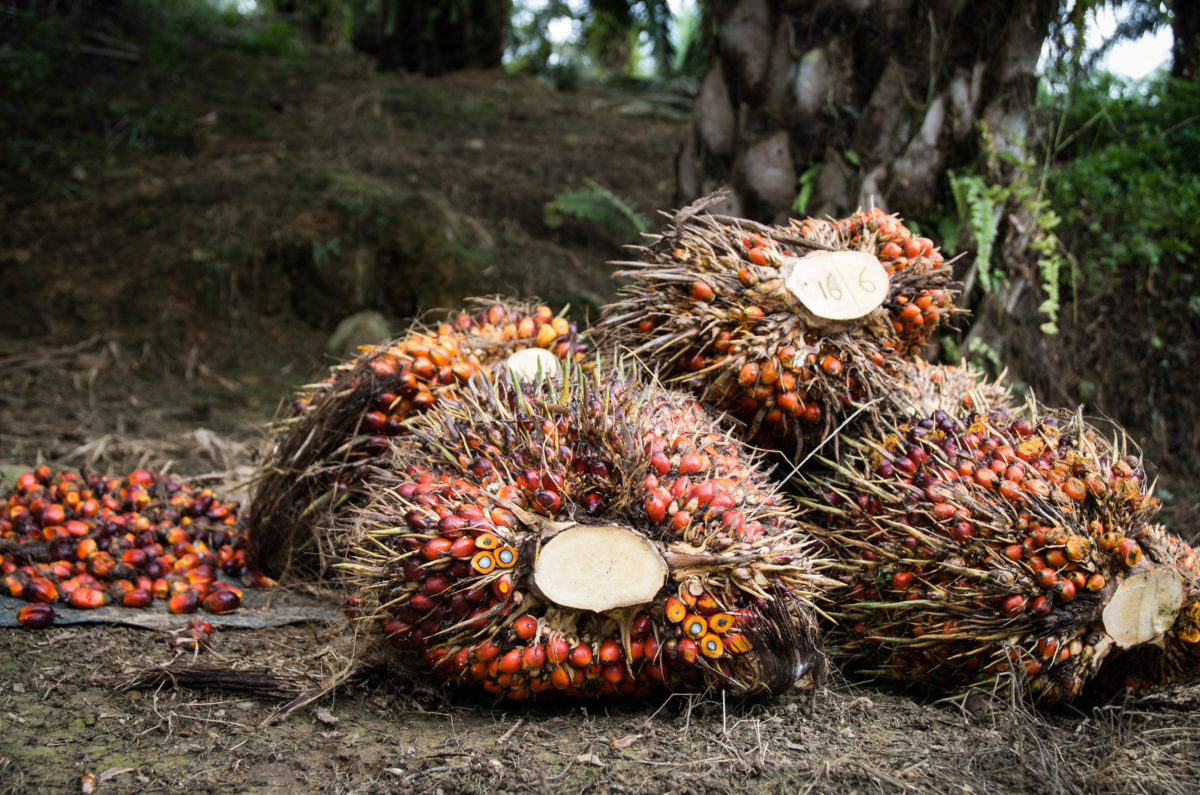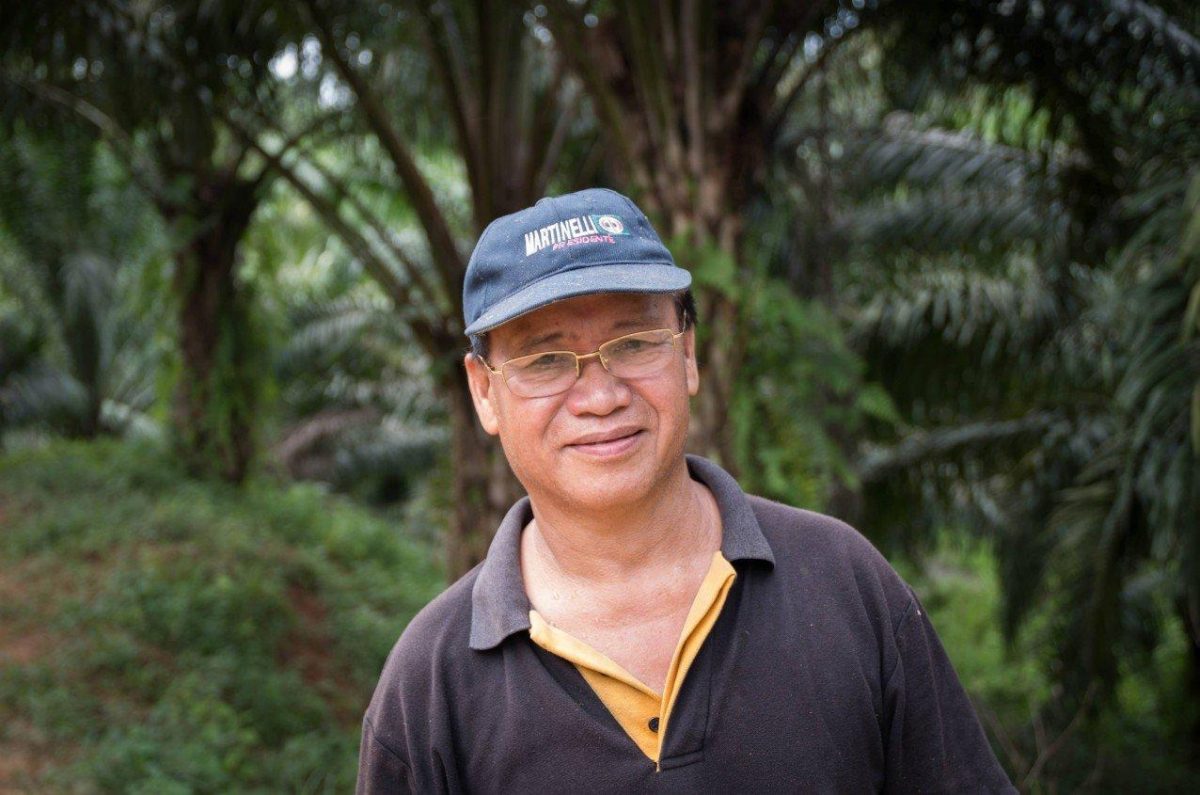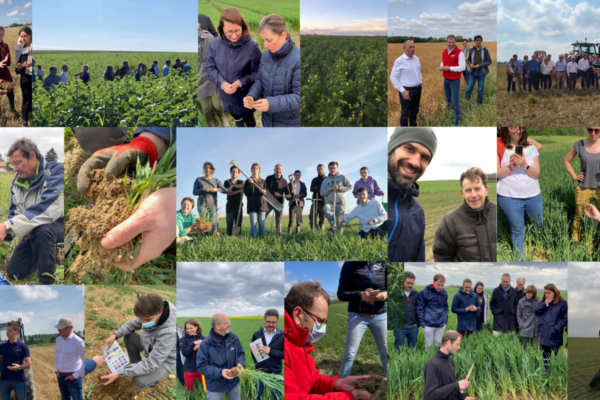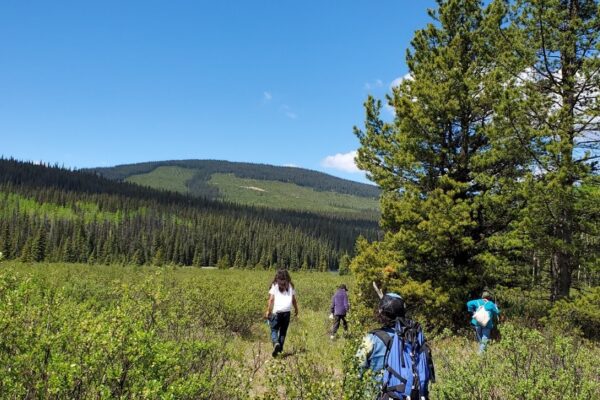Continuing our #PeopleOfPalmOil series, TFT's Rodrigue Kreilmann takes a journey into Malaysia's palm oil heartland.
As of January 2019, The Forest Trust has become Earthworm Foundation.
While I was out exploring the omnipresent palm oil industry in Sabah, Malaysia, I took a moment to send this picture to my mom.
She immediately responded asking “Are those local fruits?”
I said “yeah, that’s the fruit palm oil comes from.”

Astonished, she answered “Well, you learn new things every day…”
I’ve come to realise how strange this exchange with my mother must seem to a local when the only tree you can see for MILES around is the oil palm tree. It’s seriously everywhere.
Speaking of locals, this is Jerry.
Jerry recently joined TFT as part of the Rurality programme. He was born and raised in the area and used to be a assistant plantation manager for Wilmar.
Now, he had the not-so-glorious task of being my tour guide.
On our first day he took me to my very first palm operation – his mother in-law’s.
She runs a relatively small plot with one worker and his family living onsite.
For me, lots to take in already.
As we drove around the community, he said to me,
“You can say that everything people have here – cars, houses, shops – is thanks to palm oil. Everything you see.”
Let’s talk about smallholders
Rurality is a TFT programme that aims to foster resilience for smallholder farmers. Basically what that means is that as industries consolidate and increasingly operate at large scales for efficiency, the little guys tend to be ignored along with their increasing problems. They either get pushed out or absorbed. Except that as we just learned from Jerry, small-scale farming is vital to the livelihood of communities. And for Sabah’s communities, that means palm oil! How do we help them ensure their footing both in the industry and as resilient (or *gasp* sustainable) farmers?
These Rurality guys are basically the Justice League of small farming entrepreneurs. They travel the area surrounding a partnering palm oil mill (in this case IJM, a mill supplying TFT member Nestlé) and offer their expertise to smallholders willing to open their doors. I got to ride shotgun for a few days’ worth of visits, meeting (extra)ordinary people and getting a glimpse into their challenges.
Meet the farmers
Here we are going to meet three Rurality Uncles. Not necessarily the brother of someone’s father, though. In Malaysia, “Pakcik” – or “Uncle” – is a term of respect used for people older than yourself or who are married with children.

Rurality visit 1
Uncle is the first small-scale farmer I met, with around 25 acres and three workers – and luckily for me, he speaks English. In fact, not so long ago, he still worked for the government as an English teacher and took up management of this family plot when he retired.
Quote: “Thank you for your interest in me”
Uncle predominantly uses his land for palm fruit production.
But at one point he asked me: “What do you think about my banana tree?”
To be honest, as far as I could tell, its a fine banana tree.
The problem is that he had wanted to diversify his income but noticed that as the banana trees got bigger, the palm trees became less productive.
He now has to make a choice and I asked which he would favour.
He laughed and without a moment of hesitation said: “Palm oil!”
Rurality visit 2
Uncle is a family man. He has a beautiful family of four children, with the elder son old enough to help on the farm. Only a few years ago, Uncle’s father passed away and left he and his brother these plots of land. At the time, Uncle lived and worked in Kota Kinabalu as a cook. Now he has a tough road ahead to turn his 15 acres into a productive income for his family and give his children the opportunity to continue their studies.
I asked him how he compares his income as a cook versus as a palm farmer and he said it was about even-Steven.
He added, “But now, I am my own boss.”
We laughed and agreed that’s always better.
His major challenge at the moment is his ageing orchard, where a large number of trees are getting too tall and need to be replaced. This can often be a challenging time for a farmer as it represents a significant investment and a loss. He will need to fell the trees, buy good seedlings, buy the necessary fertilisers to help them grow fast and even then it will take at least 3 years before they start producing fruit.
The TFT team is working with him on a battle plan.
Rurality visit 3
Right off the bat, it was clear Uncle has been in the business for a while. He began his palm operation in 2000 with little guidance. After some very hard years, he is now reaping the financial fruits of his labour. He has a home in the town, adjacent to his 20 acres, with the walls proudly boasting graduation pictures of his daughter. Ever the entrepreneur, he opened a little shop attached to his house, selling staples.
However, life is not without its challenges and he is eager to have Rurality on his side. In fact, he likes the programme so much he has been actively promoting it to his neighbouring farmers.
His orchard has not been spared by the fungus disease, Ganoderma, that attacks the tree’s roots, slowly rotting it from the insides and ultimately killing it.
This is a fairly common problem in the area and no cure is available.
He is working with the Rurality guys and other stakeholders to contain the contamination with a chemical fertiliser compound recommended by the MPOB (Malaysia Palm Oil Board) while waiting for a more effective solution to arise.
But challenges don’t stop there for an established farmer, and they include low availability of workers, droughts lowering yields, ageing trees, elephant raids (yes, you read that correctly), and land-grabbing.
So now that we’ve met a few #peopleofpalmoil and learned about some of their challenges, perhaps you – like my mom – will spare a thought for the (extra)ordinary entrepreneurs behind our daily consumption. Join us in supporting brands that acknowledge and appreciate the smallholder in their supply base.


